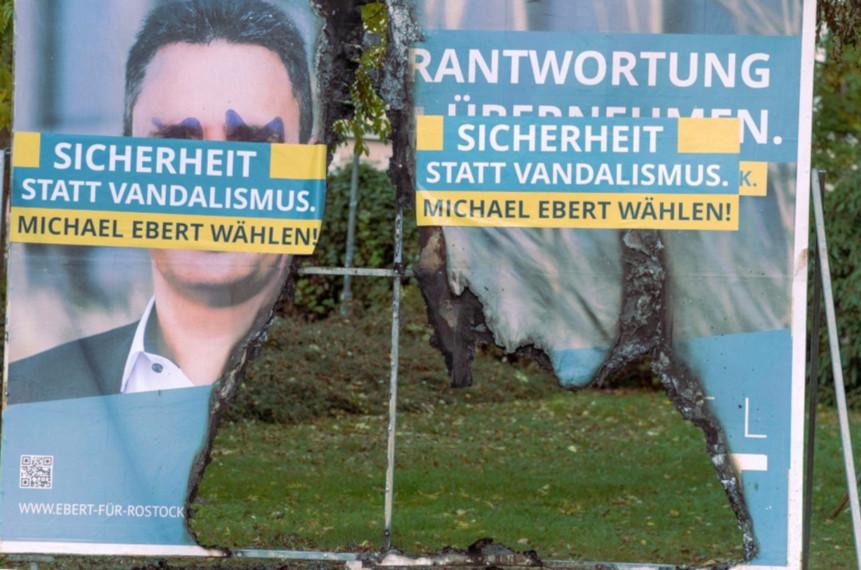The mayoral election held on November 13 in the "Hanseatic and University City of Rostock", once again underscores the trend of increasing rejection of the bourgeois electoral farce by the masses.
About 172,000 eligible voters were to be persuaded to cast their ballots. For this purpose, people from 16 years of age were allowed to vote. There were 4700 first-time voters. In addition, with well over a dozen candidates, a choice was to be suggested. The entire city was filled with larger-than-life pictures of the candidates. Yet, according to initial data, voter turnout was less than 44 percent (probably including invalid or blank ballots). In the last mayoral election in 2019, it was 59 percent on the first ballot. That represents a drop of a whopping 15 percent.
Rostock is the largest city in Mecklenburg-Vorpommern with a population of just under 210,000. There, Claus Ruhe Madsen resided in office, governing somehow charmingly in the eyes of some, but mainly doltishly. Madsen was then promoted to Schleswig-Holstein in June of this year as Minister of Economics in the cabinet of Prime Minister Daniel Günther (CDU). Madsen had particularly stood out for this promotion due to the failure in connection with the organization of the Federal Garden Show. Long delays and high cost increases, intransparency and no approval by the own bureaucratic apparatus were attested to Madsen by many.
The current result makes a runoff election necessary, because neither Eva-Maria Kröger of the Left Party, nor the former boss of the Rostock cops, Michael Ebert, received even close to a majority. Kröger, according to initial figures, was only at around 25 percent, mind you of only 44 percent of eligible voters, i.e. only slightly more than 10 percent. That is a really small "legitimacy" base even in the face of the developing crisis of parliamentarism.
In some Rostock districts, such as Lichtenhagen, Lütten Klein and Evershagen, the mobilisation capacity of the bourgeoisie for this election was only about 30 percent.
The fact that the masses' approval of the ruling policy is not particularly high is surely also due to the fact that the recession is particularly pronounced in Mecklenburg-Western Pomerania. Only one federal state is more strongly affected by the current cyclical crisis, as part of the general crisis of imperialism. The unemployment rate is over 7 percent, compared to the national average of 3.1 percent. Rostock, as the largest city in the state, is only slightly below that at 7.0 percent. Unemployment numbers are up 7.9 percent in Rostock compared to the same month last year in October 2022, and most of the jobs that are (still) available are temp jobs.
The anger of the masses towards the election is expressed in many ways. Burned election posters are one expression. A reported attack on the car of 48-year-old state parliament member and mayor candidate Michael Meister of the AfD, in which two tires are said to have been broken, is another.

